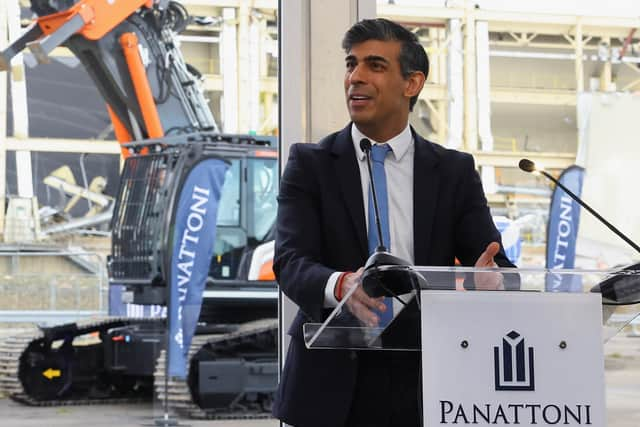General election 2024: When is the general election expected? Why hasn't Rishi Sunak picked an election date?
It is almost certainly an election year, but nobody in Westminster seems to be able to agree when it is.
On Tuesday UK government minister Greg Hands categorically ruled out the election taking place in May, only for Labour shadow cabinet member Jonathan Ashworth to make a bet on TV that it would be then.
Advertisement
Hide AdAdvertisement
Hide AdIn the past week alone, one newspaper reported the election would be in December to give ministers time to improve the economy. Another insisted it would be autumn. A third claimed decks were being cleared for an election in May.


It’s not that any of the reports are making it up, but more that lots of people in government are saying different things, and the decision is constantly being reviewed.
Downing Street has considered a May election, which is not without its benefits. Going early avoids Rishi Sunak looking weak after the local elections, where he could face more calls to stand down from his own MPs, in the event of a Labour landslide.
Autumn will be a difficult time for the government, which could pay out more than £11 billion over the infected blood scandal, plus £2bn more for the victims of the Post Office scandal. It’s also a period where hundreds of thousands of voters will be coming off fixed-rate mortgages and on to higher deals. An election when people have just got poorer, and the public finances worse would be very risky.
There is also a belief among some MPs that as worrying for the Conservatives the current polling is, things could get even worse as the year goes on. The latest Ipsos polling has the Tories at their lowest levels of support since the 1970s, with Labour enjoying a 27 per cent lead. The sooner an election is called, the sooner the party can rebuild.
The alternative is to string this out as long as possible, and hope the numerous wedge issues created by the Prime Minister with his five pledges become achievements, rather than weights around the government’s neck.
Waiting until autumn would give ministers their best chance of seeing off legal battles and fights in the House of Lords over the controversial Rwanda bill. Given the time Mr Sunak has spent standing in front of lecterns saying “stop the boats”, failing to do so before the election would be deeply damaging.
Then there is the economy, which Mr Sunak has insisted is “on the right track”, despite heading into a recession. The Prime Minister is believed to not want to call an election until inflation is at 2 per cent, which could come as soon as May. However, the figures for May won’t be published until a month after, meaning an election would likely be later in the year.
Advertisement
Hide AdAdvertisement
Hide AdWhen Mr Sunak took over from Liz Truss, inflation was 11.1 per cent. Getting it down to 2 per cent would be a tangible improvement the public would see in their daily lives, and allow Mr Sunak to insist his party can still be trusted on the economy.
There are no easy answers for the Conservatives. They either wait in case things get better, or act now before they get worse.
Comments
Want to join the conversation? Please or to comment on this article.
